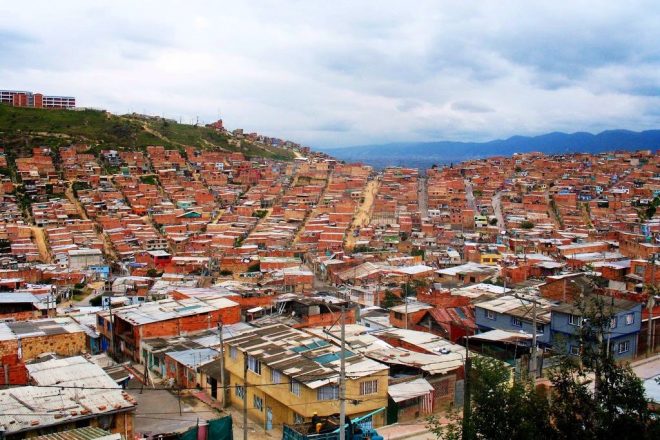 Under the spotlight: the redistributive impact of social protection, alongside fair taxation policies
Under the spotlight: the redistributive impact of social protection, alongside fair taxation policies Rising inequality is a setback for the Sustainable Development Goals and must be combatted by improving coverage and adequacy of social protection systems, according to the Global Coalition for Social Protection Floors.
The coalition of NGOs and trade unions from across the globe sounded the alarm over how the richest 1% hold more than 15% of national income in a number of countries around the world — and as much as a fifth, in South Africa.
The coalition’s statement highlighted that strong social protection systems, alongside fair taxation, are “key instruments for address[ing] rising inequalities”. Social transfers and taxes together have reduced income inequality by up to 15 Gini points in Brazil and Scandinavia, according to the coalition, representing 80 NGOs and unions.
The statement draws out how two countries with the same level of government revenues and social expenditure “can achieve vastly different degrees of redistribution,” with the extent to which benefits reach those in poverty, the mode of financing and tax system design all playing a role.
It is published in the wake of the IMF’s statement that “what matters” is the mix of tax and social protection policies that together have the biggest redistributive impact — although unions said there was “no clear change of policy” from the IMF to support this.
The coalition’s document notes that advocates of poverty-targeting in social protection say this selection method should maximise the redistributive impact at lower cost. However, the coalition sounds a cautious note on this, given counter-arguments that universal transfers would receive higher budget allocations and be sustained by social consensus, “thereby potentially yielding stronger redistributive results”. And in nations where poverty is widespread, “the costs of targeting become disproportional”. It concludes, that ultimately, “social protection needs to be recognised as a human right for all”.
The coalition also focuses on how contributory schemes need to reach those in poverty. The statement suggests either “subsidising them for those who are unable to contribute [or] providing higher replacement rates for low–income earners and linking them more strongly with non-contributory schemes”.
Alexandra Barrantes, Senior Social Policy Specialist, Development Pathways, commented: “In our experience, inclusive social protection systems have a greater impact on inequality, and are necessary in order to realise the right to social protection.”
On contributory schemes, Shea McClanahan, Senior Social Policy Specialist, added: “Multi-tiered social protection systems can achieve universal coverage and put in place the incentives for those working in the informal economy to participate.”
Development Pathways is launching a new training course to equip participants with the knowledge to make the case for inclusive schemes, which can support efforts to tackle inequality. We have published materials on social protection and inequality, including how the main beneficiaries of poverty-targeting are the rich, not those in poverty.



